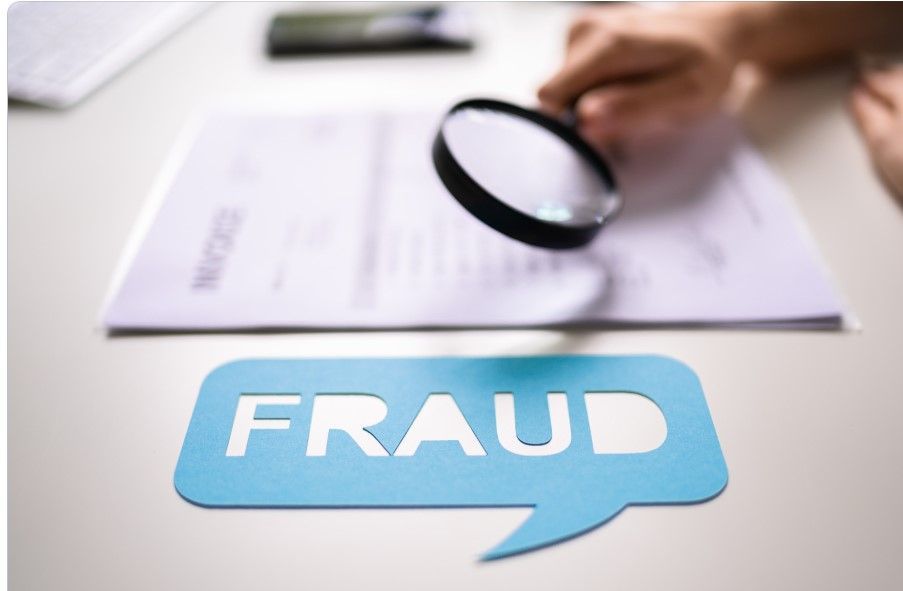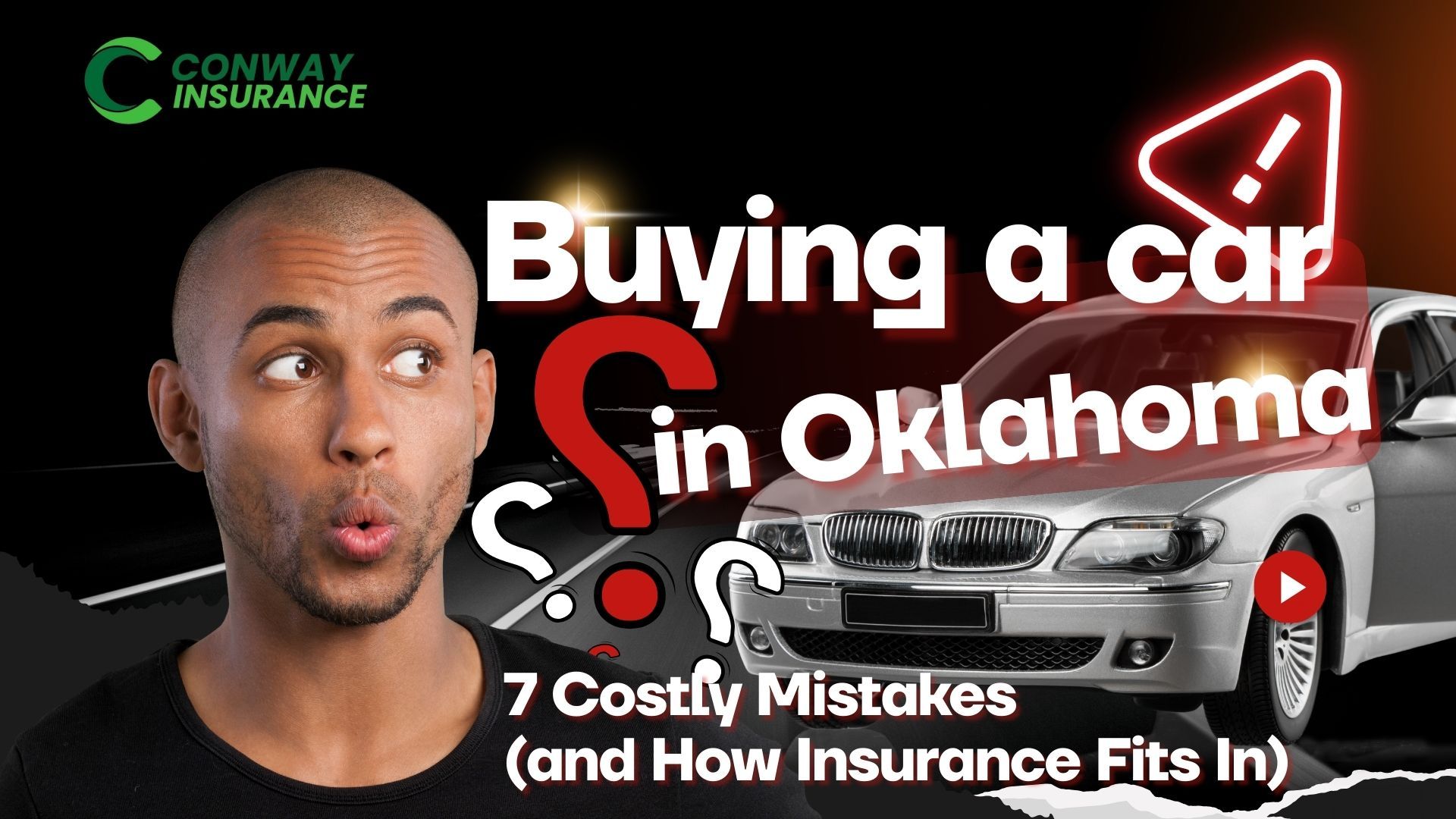Fraud Affects Us All
Steven Conway • December 15, 2024
Fraud Affects Us All

The insurance industry is facing a significant challenge today in the form of insurance fraud. The cost of this crime to insurers and policyholders is billions of dollars every year. Even though some may believe it's a victimless crime, insurance fraud affects everyone's premiums.
Fraud in the insurance industry: What is it?
An insurance fraud occurs when someone deceives an insurance company to gain financially. Staging accidents, inflating claims, falsifying insurance applications, and falsifying insurance applications are just a few examples of insurance fraud. Despite their apparent isolation, these actions affect all policyholders. As a result of fraudulent claims or misrepresentations, insurers' costs rise, leading to higher premiums for honest consumers.
Premiums that are too high and insurance fraud are prevalent
Insurance fraud occurs when someone intentionally deceives an insurer for financial gain. Insurance companies suffer from fraudulent activities as well as consumers, whose premiums increase as a result. Here are the steps:
1. A higher payout for claims
Paid fraudulent claims add to the overall losses to the carrier. The carrier in turn will increase premiums for everyone to cover all losses both legitimate and fraudulent.
2. High operating costs
For insurance companies to detect and prevent fraud, advanced fraud detection technologies, specialized investigators, and training programs must be invested. The additional operational costs lead to higher premiums.
3. Detailed underwriting of the project
The data used by insurers to set premiums can be skewed by fraudulent claims. Insurance premiums may rise for everyone in that risk group if fraudulent activity alters insurance statistics.
4. Lack of trust
A high level of fraud may lead insurers to be more cautious about accepting higher-risk policyholders. The insurer may increase premiums for everyone, even those at low risk of filing fraudulent claims, to mitigate the increased risk.
5. Claims are becoming more difficult to process
Fraud slows down the claims process. Processing time and costs increase due to the need to thoroughly investigate fraudulent claims. As a result of this delay, insurance companies incur higher costs.
---
Fraudulent activities related to insurance
Fraud in the insurance industry takes many forms, and each type affects rates differently.
1. Staging accidents to defraud insurers
The purpose of staging accidents is to collect an insurance payout. This can be accomplished by fabricating fake witnesses, exaggerating injuries, or causing damage to property.
In areas where this fraud is prevalent, insurers often raise rates for all insured because of staged accidents.
2. Exaggerated claims
An example of this type of fraud is when policyholders inflate the severity of their losses, regardless of whether the loss was caused by an auto accident, property damage, or a personal injury. Insurance companies may overestimate damages or injuries incurred by insureds.
Exaggerated claims result in higher premiums for consumers.
3. False medical claims (fraudulent health insurance claims)
A false health insurance claim involves billing for treatments that were not provided or exaggerating the cost of those treatments. A claim could also be submitted for a procedure or treatment that does not exist.
Fraudulent medical claims cause healthcare costs to rise, forcing health insurers to raise premiums.
4. Falsifying application information
Underreporting income, failing to disclose a preexisting medical condition, or failing to disclose a hazardous occupation are examples of falsifying insurance applications. A misrepresentation can cause an insurer's risk assessment to be skewed. The carrier will fail to collect appropriate premium based on the risk characteristics.
When an insurer pays out a claim based on fraudulent information, everyone's premiums rise. As a result of these misrepresented risks, insurers have to increase their rates.
5. Theft of property insurance (arson)
Arson fraud occurs when a person intentionally burns down their own property to collect an insurance payout.
As a result of the costs associated with processing and paying arson claims, insurers charge higher premiums. Consequently, property owners, especially those in high-arson areas, can expect to pay higher premiums.
6. Fraudulent claims for workers' compensation
The purpose of workers' compensation fraud is to collect benefits that employees are not entitled to by fabricating or exaggerating their injuries. Employers can also misclassify workers to reduce their insurance premiums.
7. Fraudulent life insurance policies
Faking a death, submitting false death certificates, or staging a suicide to collect a death benefit are all examples of life insurance fraud. Insurers face this less often, but it is still a serious issue.
8. Inflated or false theft claims (auto insurance fraud and homeowner's insurance fraud)
False claims for stolen property are submitted in this type of fraud. It is possible for policyholders to claim their belongings were stolen when they weren't, or to exaggerate the value of their stolen items.
9. Fraud in the healthcare industry
Health care providers can also commit fraud by submitting false claims or overcharging for services that were not rendered. Overbilling and unnecessary procedures are examples of this.
The Scope of Insurance Fraud Statistics
The financial impact of insurance fraud is staggering. Fraud accounts for approximately 5-10% of all insurance claims, according to the National Insurance Crime Bureau (NICB). Every year, billions of dollars are lost to fraudulent activities, resulting in higher premiums for all policyholders. The cost of insurance fraud in the United States alone is estimated to be around $80 billion annually, which is passed on to consumers.
Fraudulent insurance claims have far-reaching consequences
Fraud in the insurance industry is more than just a crime -- it raises costs for everyone. A variety of fraudulent activities raise insurance rates, including staged accidents, exaggerated claims, and health care provider fraud. Policyholders pay higher premiums as a result of insurers passing on these costs.
In addition to becoming aware of the risks and combating fraud through vigilance, consumers can also report suspicious activity to the insurance industry once they understand the types of fraud and how they affect the insurance industry. By reducing fraud, keeping premiums low, and ensuring fair pricing, all parties benefit.
Please note that the information provided in this article is intended for general informational purposes only and may not apply to your specific situation. Insurance laws and regulations can vary significantly from state to state, and it’s crucial to understand the specific requirements and coverages that apply to your location. We strongly recommend consulting with a licensed insurance agent in your state to discuss your unique needs and ensure you have the appropriate coverage for your circumstances.
Recent posts

Auto insurance discounts can feel like Bigfoot — everyone talks about them, and if you’ve spent time in Broken Bow or Hochatown, you know some folks swear they’ve seen one. But actually finding a discount that applies to you? That’s another story. At Conway Insurance, we help Oklahomans cut through the gimmicks and find the discounts that are real, practical, and can actually lower your bill. Whether you’re in Oklahoma City, Edmond, Norman, Midwest City, Tulsa, or down in Broken Bow, here’s what you need to know about saving money without sacrificing protection. If you’re looking for affordable auto insurance in Oklahoma without cutting corners, you’re in the right place. TL;DR – Quick Guide to Oklahoma Auto Insurance Discounts Looking for affordable auto insurance in Oklahoma without cutting coverage? Here are the biggest ways Oklahomans save: 🎓 Good Student – Teens/college drivers with B average or better. 🚗 Multi-Car & Multi-Policy – Biggest savings for families, bundles, or renters + auto. 📱 Safe Driver / Telematics – Drive safely, get rewarded (Progressive Snapshot, GEICO DriveEasy). 💻 Auto-Draft & Paperless – Small but easy savings for e-sign and autopay. 🛡️ Loyalty & Continuous Coverage – Stick with your carrier, avoid lapses, earn better pricing. 🏠 Bundle with Renters/Home – Even a small renters policy can drop your auto rates. 🎖️ Military Discounts – Available with carriers like GEICO for active, retired, Guard/Reserve. 🧾 Defensive Driving & Driver’s Ed – Great for teens, mature drivers, or ticket clean-up. ⚡ Bonus Discounts – Hybrid/EV, early renewal, prior carrier, professional group credits. 👉 Not all discounts apply to all drivers; eligibility varies by carrier and may change at renewal. We’ll shop Progressive, GEICO, Safeco, Mercury, NatGen, and more to find what fits you. Why Discounts Get Confusing Carriers love to advertise “up to 20% savings,” but here’s the fine print: not every discount applies to every driver. That’s why one person leaves smiling, while another wonders why their rate didn’t budge. And let’s be honest — it’s frustrating when you see ads promising huge savings, but your own quote barely changes. Sound familiar? As an independent agency, Conway Insurance shops Progressive, GEICO, and other trusted carriers to match you with the discounts you actually qualify for — no false promises.

You’ve driven up to a car dealership in Edmond, Norman, Tulsa, or one of the hundreds across Oklahoma for a test drive — fallen in love with the leather seats, the new-car smell, and the salesperson’s “today-only deal.” You’ve convinced yourself the monthly payment isn’t that bad. You know the look — that “today-only deal” grin. Then come the tag fees… and that insurance quote you didn’t see coming. Buying a car isn’t just about the test drive and financing; it’s about understanding the hidden costs that follow you home — like insurance. 🧾 TL;DR – Quick Guide 🚘 Buying a car in Oklahoma? Avoid these seven mistakes: ❌ Don’t skip VIN checks ❌ Don’t rely on minimum coverage 💬 Quote your insurance before signing 🛡️ Protect yourself with GAP and comprehensive coverage 📋 Review your policy afterward 🤝 Keep your agent in the loop — small details prevent big problems 🧭 Oklahoma Quick Facts • 13% of Oklahoma drivers are uninsured • State minimum liability: 25/50/25 — meaning $25,000 per person, $50,000 per accident for bodily injury, and $25,000 for property damage • Average new vehicle cost: $48,000 • Average Oklahoma tag & title fees: $300–$600 per vehicle 💡 Translation: A single crash involving a newer SUV could exceed the state’s minimum property-damage limit instantly.
